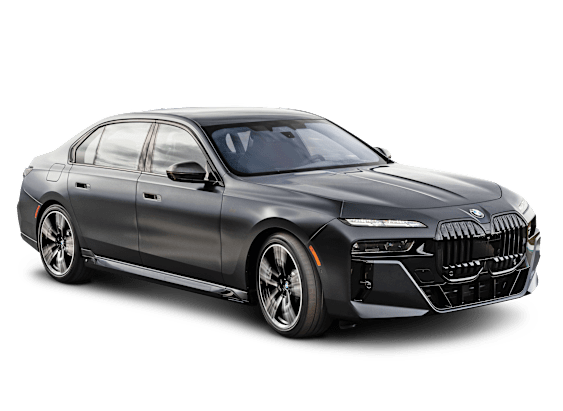Introduction
Ultra-Luxurious 2023 BMW 7 Series and i7
This flagship sedan feels like seventh heaven, whether on electric or gas powerOverview
BMW has charged into the EV market by using its existing platforms to create both gasoline and electric versions, as demonstrated with the redesigned BMW 7 Series and all-new i7.
This strategy makes it appear at first glance that BMW is not as committed to EVs as some other manufacturers. However, the 7 and i7 ultra-luxury sedans are both quite impressive, based on our initial driving experience with examples rented from the German automaker. And there are dedicated EVs in the product pipeline.
This is no surprise, because BMW has a long reputation of building desirable cars, and with Tesla eating into its sales, there are good reasons for it to emphasize electric cars. BMW has been feeling the pain from many customers flocking from the BMW 3 Series to the Tesla Model 3. To some extent, BMW has countered that with the excellent i4 sedan. It is likewise applying a two-car strategy to compete with the Tesla Model S with the conventionally powered 7 and i7 EV.
And BMW will stick to this approach when it introduces the redesigned 5 Series in late 2023.
The 7 Series lineup starts with the 740i, packing a smooth, energetic, and fuel-efficient 3.0-liter turbocharged six-cylinder engine. Then there’s the 760i xDrive with a muscular 4.4-liter turbo V8, and a 750e plug-in hybrid, also with the 4.4-liter V8. Prices range from $96,400 to $121,300.
The i7 comes in three flavors: a rear-drive eDrive50 ($105,700), xDrive60 AWD ($124,200), and the super high-performance M70 ($168,500).
The gas-powered 7 Series competes with the world’s elite sedans: Audi A8, Lexus LS, Genesis G90, and Mercedes-Benz S-Class. That’s a dwindling class of cars because the luxury market is branching into two distinct directions: EVs or large SUVs.
The i7 competes with the top crop of EVs, such as the Audi eTron GT, Lucid Air, Mercedes-Benz EQS, Porsche Taycan, and Tesla Model S.























